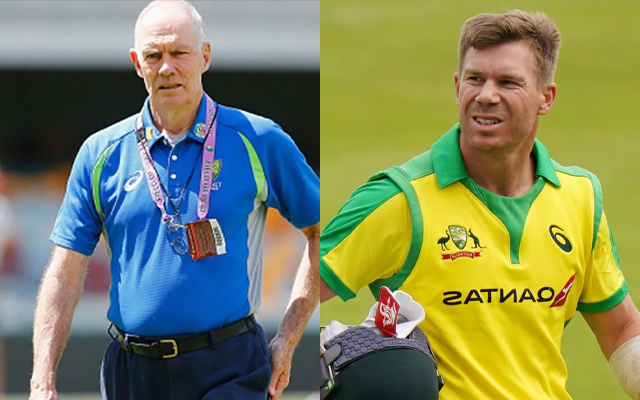- Dec 2, 2024
- Aug 25, 2022

In a column for ESPN Cricinfo, former Australia skipper, Ian Chappell has said that he couldn’t be happier that Australian opener David Warner told Cricket Australia the equivalent of “go and get stuffed” by going public with his decision to withdraw his request for a review of his captaincy ban.
Warner said that the review panel wanted him to go through a “public lynching” and he was not prepared to let his family be the “washing machine for cricket’s dirty laundry”. On this, Chappell said that Cricket Australia had never protected the interests of the players and David Warner’s outburst on the captaincy ban had exposed the authorities’ “tendencies for back-side protecting.”
“This indicated Warner – who had been advised by CA against a public outburst – didn’t trust the authorities to be mindful of his interests. It was a wise decision by Warner as CA is renowned for only protecting their own interests, not those of players,” wrote Chappell in his column. He added that young players should be thankful Warner exposed CA’s tendencies for ‘back-side protecting’ and that they need to keep it in mind for the future.
“Most importantly, though, Warner’s withdrawal of his review highlights how appalling the original decision to award him a lifetime leadership ban was,” he added.
The incident in question occurred in a Test match against South Africa in Cape Town in 2018, with skipper Steve Smith and Warner, who was his deputy at the time, being suspended for 12 months after Cameron Bancroft was caught applying sandpaper to the ball.
In addition to their suspensions, the trio also served leadership bans of varying lengths of time. Smith was banned from holding a leadership position in Australian cricket for two years, Bancroft was banned from captaincy for 12 months, and Warner was banned for life from any captaincy roles.
In Chappell’s opinion, however, Warner and Smith should have received the same leadership punishment after the Cape Town incident and that Smith’s crime was greater than Warner’s.
“Cheating is indefensible but so also is Smith as Australia captain saying ‘I don’t want to know’ when he walked past Warner and Bancroft, who were deep in discussion in the dressing room before they went ahead with the plan to tamper with the ball,” said Chappell. “As a captain it was Smith’s job to know what his players were up to. If their motive was illegal, he needed to put a quick stop to any shenanigans.”
Chappell went on to criticise the Australian cricket authorities’ handling of the situation, saying that it was no wonder Warner was incensed by his stiff original punishment while others were treated far more leniently.
“In the lead-up to the events in South Africa and in the aftermath, CA has erred regularly because self-protection is a high priority for them. The lop-sided punishments, the botched integrity review in South Africa, and then the absurd decision to not allow an appeal by the Australian players – their list of failures goes on. No wonder Warner had a gut full, but he chose the right target to attack,” he said in his column.
This also comes in the aftermath of Steve Smith once again assuming the role of captain of the Australian team for the second Test match against the West Indies, following regular skipper Pat Cummins’ withdrawal due to injury. Warner, however, is still serving his captaincy ban.
Chappell also added that he didn’t think Warner was expecting to gain a leadership position in the Australian set-up despite a successful review of the ban, saying that the 36-year-old was “too old to be considered for a captaincy position in the Australian regime despite the fact that he has always had great leadership instincts.”
However, Chappell feels that Warner might have hoper to lead his BBL franchise Sydney Thunder at some point, saying that he would have been the ideal person to “guide younger players on their cricketing path.” He also added that Warner will still be a leader and be listened to by any cricketer who wants to get ahead.
Speaking on the possible reasons for the harshness of Warner’s punishment, Chappell felt that Warner may have been “disliked” by an administrator, or that his speaking out openly during the pay wrangle might have been a factor, but the real reason is unknown and is likely to remain that way, He also said that if Warner chose to reveal all the details in a tell-all book, it would be worth reading but would take some work to get published because there would be a lot of red faces around if it reached the public.
Chappell became the latest cricketing figure to back Warner’s decision after former captain Michael Clarke also lashed out at CA for their lopsided review of his leadership ban and making him a scapegoat in the 2018 incident.